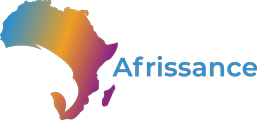When organizations are open to change, they do well and “have strong collaboration,” says Vargas. “And they have what we call psychological safety.” That is, their employees are encouraged to think about things differently and voice those ideas.
When organizations are inflexible, innovative ideas can be seen as disruptive and lead to poor adoption of ideas, as well as poor employee engagement because employees are afraid to speak their mind. “If you are dominated by fear, what happens? You don’t move. You will try to cover your position until the last day you can do that. You try to put everything on hold,” says Vargas.
Vargas also points out that new generations of workers are very aware of the need for and presence or absence of psychological safety in organizations they consider working for. “If your company is not good enough to trust or ignore social reasoning, your company will not have the best talent because the best talent will work for someone else. It’s as simple as that,” remarks Vargas.
He believes this failure is the reason many organizations are going out of business—it’s a simple unwillingness or incapacity to adapt.

